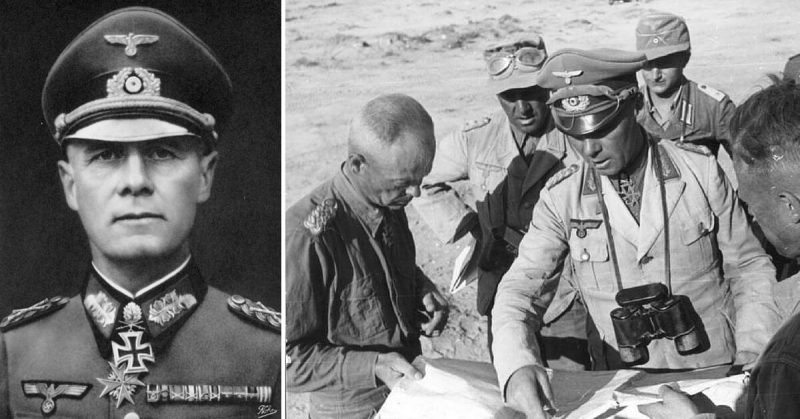Erwin Rommel was, for a time, Hitler’s favorite general. After his success in 1940, as the commander of a Panzer division, Rommel was appointed to the command of the German forces in Africa – Afrika Korps. Here, his tactical genius was recognized even by the enemy, and the ability to inspire his soldiers and make maximum use of limited resources convinced Hitler to promote him to the rank of Field Marshall.
In 1943, Hitler charged Rommel to coordinate the fortification of the “Atlantic Wall” along the French coast, the defensive line that the Germans wanted to use to repel the inevitable Allied invasion in Europe (which would take place in June 1944).
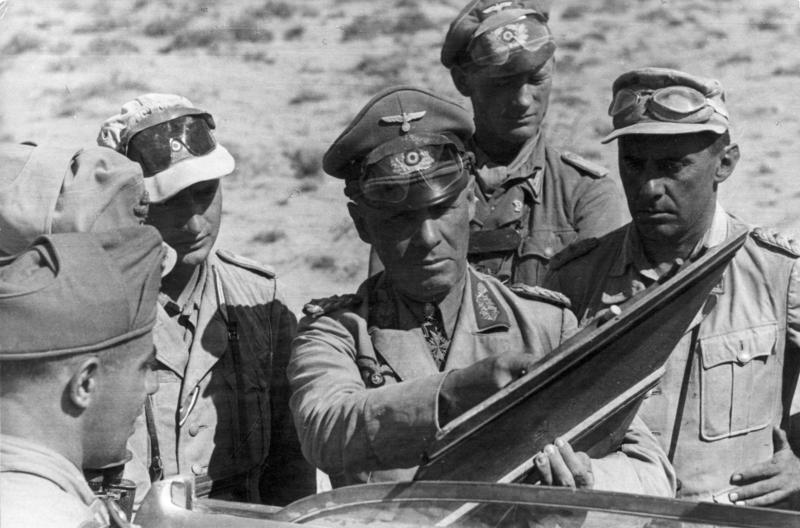
By the beginning of the war, Rommel was confident in Germany’s power. But at the start of 1943 his trust in Germany’s ability to win the initiated conflict began to crumble as days went by, and so did his faith in Hitler. Traveling in Germany, Rommel was outraged by the devastation caused by Allied air raids and the eroded public morale was not a good sign for him.
He also found out about the concentration camps, the forced labor, the extermination of the Jews and other atrocities committed by the regime that he was serving. Gradually, he reached the conclusion that the German victory was a lost cause and that the extension of this war would only do more damage to Germany. The field marshal came into contact with members of a group who planned to overthrow Hitler and negotiate a separate peace with the Allies. Rommel did not agree with the assassination of Hitler, believing that such a gesture would transform the Führer into a martyr. He believed that arresting Hitler and placing him under trial would be the best solution.
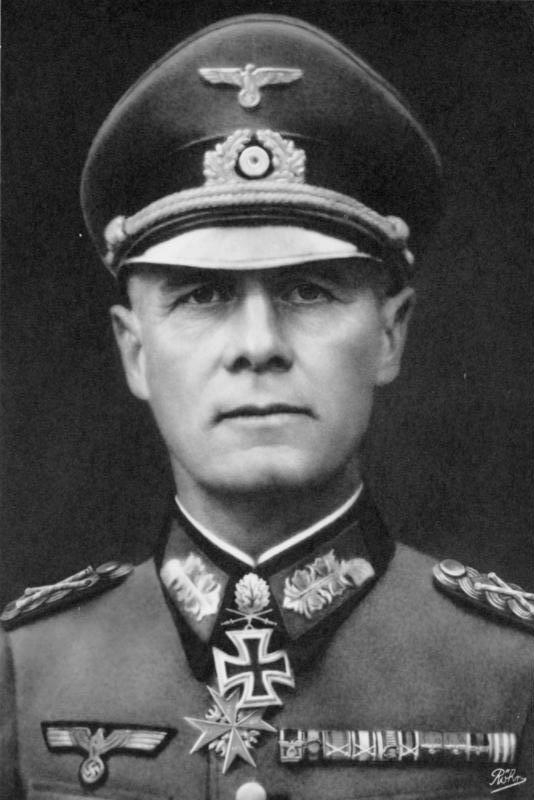
On July the 17th 1944, Rommel was seriously injured when the car he was in was attacked by a British plane. He was immediately carried to the hospital and then sent to Germany for medical treatment and recovery. Three days later the famous assassination attempt against Hitler took place (July 20’s Plot). The attempt failed, and during the investigations and reprisals that followed someone mentioned Rommel’s name, involving him in this plot.
Though there are chances that Rommel was never aware of the plot, the defeatist attitude he adopted was enough to arouse the Führer’s anger and suspicion. For Hitler, it was clear that Rommel had to be removed. But how can you eliminate the most popular and appreciated soldier in the German army without letting the people know that you ordered his death? The solution was simple: Rommel was forced to commit suicide and propaganda announced that the marshal died because of the injuries he suffered on July the 17th.
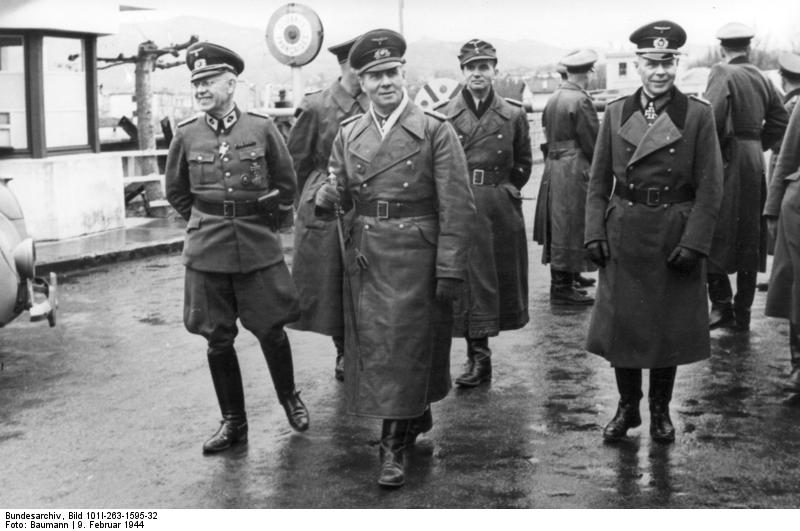
The death of a German hero told by his son
Rommel’s son, Manfred, was 15 years old in 1944 and was enrolled in an antiaircraft crew near home. On October 14, Manfred received permission to go home, where his father was still recovering, being under house arrest.
Manfred recounted those last moments spent with his father.
“I arrived in Herrlingen at 7 am. My father was having breakfast. They quickly brought a cup for me and we ate together, then we took a walk in the garden.
«At 12 o’clock two generals will come here to discuss my future», my father said. «So today I will see what is planned for me, the People’s Court or a new command post in the East.»
«Would you accept such a job? », I asked him. He took my arm and replied: «My dear boy, our enemy in the East is so horrifying that any other matter goes to second place. If the enemy manages to conquer Europe, even temporarily, it would be the end of everything that makes life worth living. Of course I would go. »
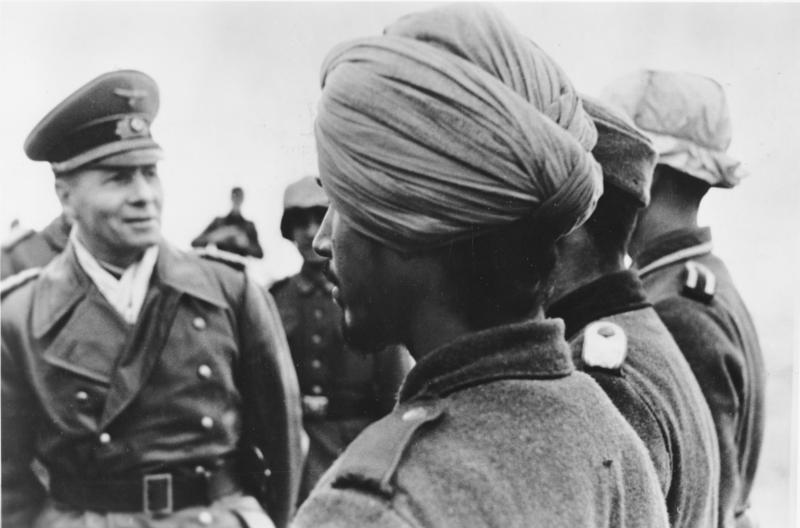
Shortly before 12 o’clock, my father went up to his room on the first floor and changed his civilian clothes which he usually wore over his riding pants and put on the Afrika tunic, his favorite uniform because of its open collar.
Around 12 o’clock a dark green car with a Berlin registration plate stopped in front of the gate. The only men in the house, besides my father, were captain Aldinger, a corporal, war veteran, badly wounded and I. Two generals – Burgdorf and Maisel – stepped out of the car and entered the house. They were respectful and courteous and they asked for the permission to speak with my father in private. Me and Aldinger left the room. «So they will not arrest him.», I told myself with relief while I was going up stairs to look for a book.
A few minutes later I heard my father coming upstairs, entering my mother’s room. Eager to find out what happened, I stood up and followed him. He was staying in the middle of the room with a pale face «Come outside with me. », he told me with a tense voice. We went into my room. «I just had to tell your mother that in a quarter of an hour I will be dead. » He then calmly continued: «It is hard to be killed by your own people. But the house is surrounded and Hitler is accusing me of treason. Taking into consideration the period I served in Africa, they will give me the chance to die by poisoning. The two generals brought the poison with them. It is fatal in three seconds. If I accept this, the usual measures will not be taken against my family, that is against you. Also, they will leave my staff alone. »
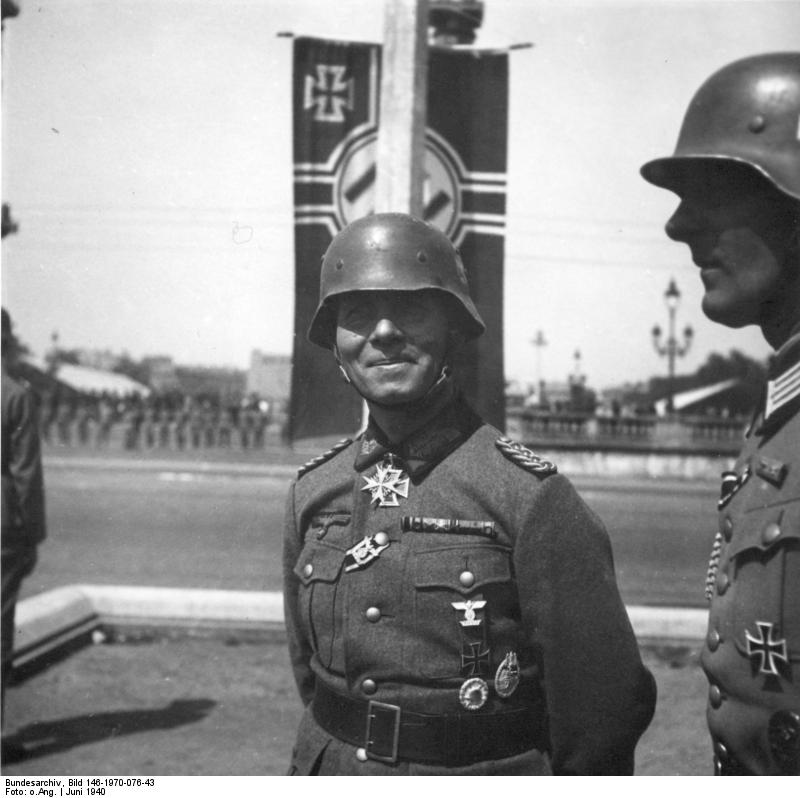
«Do you believe all of this? », I interrupted him. «Yes, I think. It is in their interest not to leave this whole affair to light. By the way, I was instructed to make you promise that you will keep silence. If a single word of this comes to light, they will no longer feel bound to this agreement. »
I tried again, asking if we could not defend ourselves. He told me: «There is no point. It is better for one man to die than all to be killed in an uproar shooting. And anyway, we virtually have no ammunition. » We said goodbye to each other and then he told me to call Aldinger.
Meanwhile, Aldinger was talking to the General’s escort so that he could not approach my father. At my call he went upstairs running. He was shocked when he found out what was going on. My father spoke faster now. Once again, he told us how useless it would be to defend ourselves. «Everything has been prepared down to the smallest details. They will give me a state funeral. I asked that it will take place in Ulm. In a quarter of an hour, you Aldinger, will receive a phone call from Wagnerschule hospital in Ulm and they will inform that I suffered cerebral seizures on the way to a conference. » He checked his watch. «I have to go. They only gave me ten minutes. » He said goodbye once again. Then we went downstairs together.
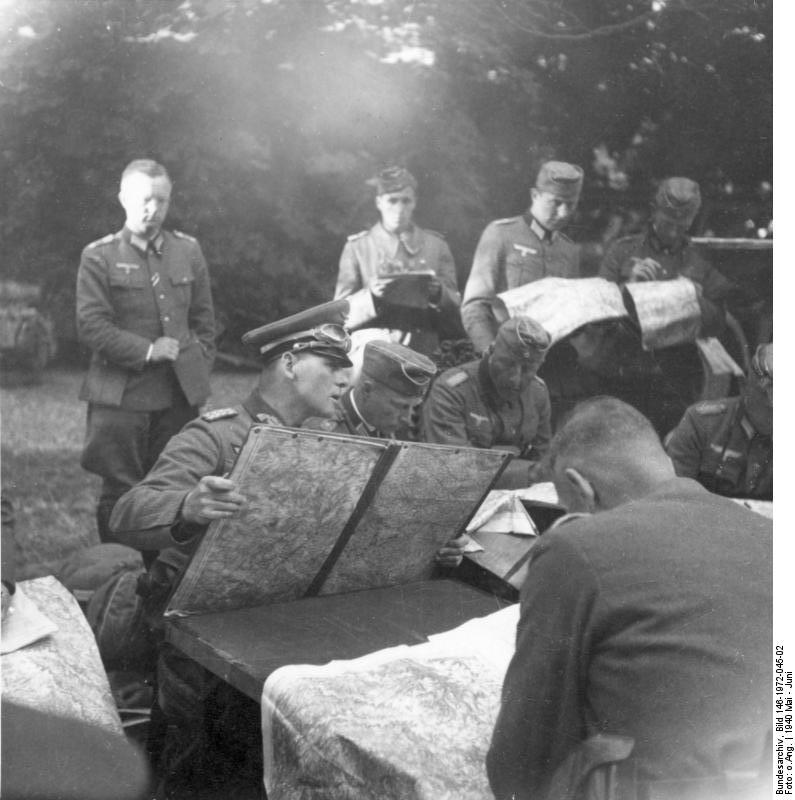
I helped my father put on his leather jacket. All of a sudden he pulled out his wallet. «There are 150 marks here. Should I take the money with me? » «It doesn’t matter anymore, Herr Field Marshal. », Aldinger said.
My father put his wallet back in his pocket. While he was entering the hall, the little dachshund he received when it was just a puppy, a few months ago, jumped at him with joy. «Lock the dog in the office, Manfred. » he told me and he waited in the lobby while me and Aldinger pushed the enthusiastic dog in the office. Then we left the house together. The two generals were standing at the gate. We slowly walked along the alley…
Approaching the generals, they lifted their right arm as a greeting «Herr Field Marshal» said Burgdorf as he was making way for my father to come through the gate. A group of villagers was standing beside the road.
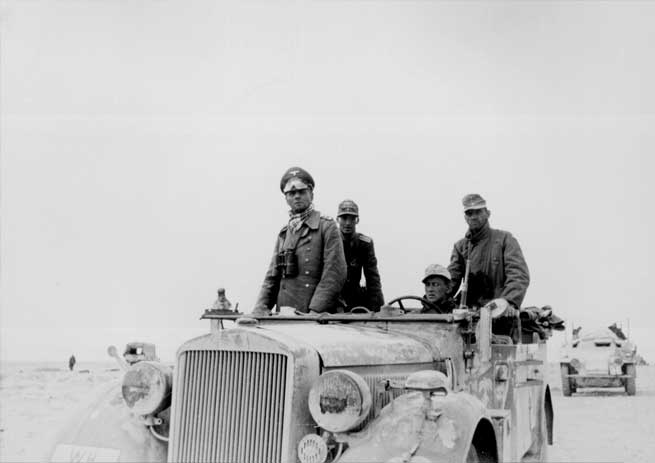
The car was ready. The SS driver opened the door. Father put his marshal baton under his left arm and shook hands with me and Aldinger before getting into the car. The two generals quickly took their seats and the doors were slammed. Father did not turn his head when the car left and disappeared after a curve. After he left, me and Aldinger walked back home in silence.
Twenty minutes later the phone rang. Aldinger answered and my father’s death was reported to him.
At that point it was not clear what happened to him after he left us. Later I found out that the car stopped a few hundred meters away from our house, in an open space, at the edge of the forest. Gestapo people, who came in force from Berlin in that morning, were watching the scene and they were instructed to shoot my father and storm the house if he resisted. Maisel and the driver got out of the car, leaving my father and Burgdorf inside. When the driver was allowed to return, about 10 minutes later, he saw my father collapsed with his marshal baton falling from his hand.”
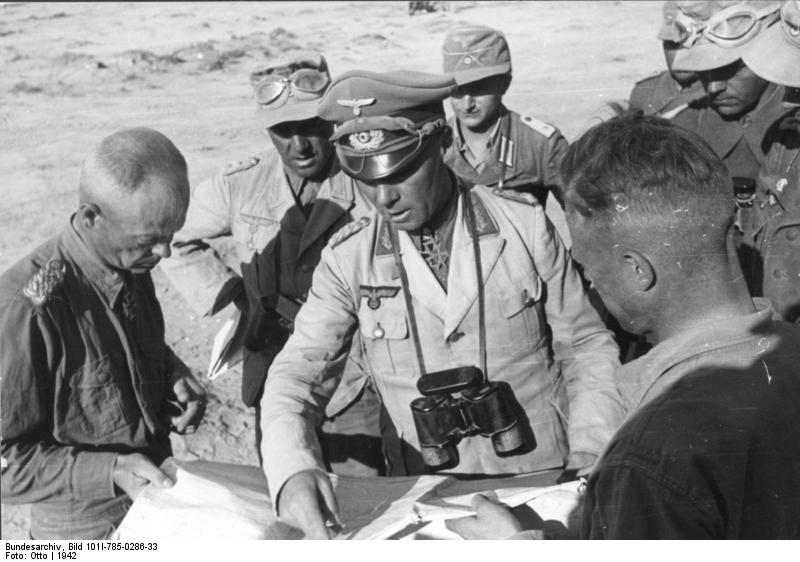
According to official statements, Rommel had died because of suffered injuries. In order to support the tragic death of the general, Hitler declared a day of mourning to commemorate Rommel, burying him with full military honors.
Much of this article was first published as “The Forced Suicide of Field Marshall Rommel, 1944,” EyeWitness to History, www.eyewitnesstohistory.com (2002).
